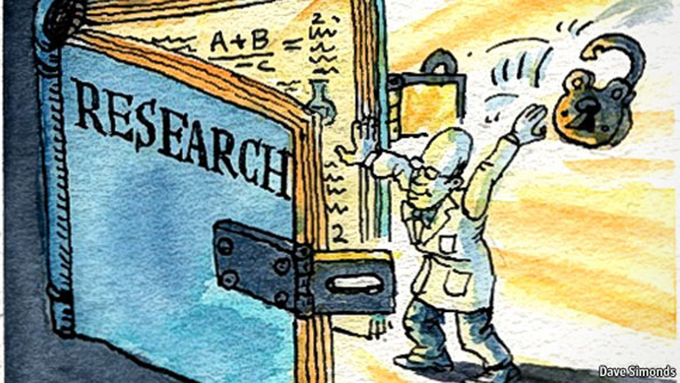
Writing has always been the storehouse of human knowledge and the backbone of civilisations. To this day, it carries our best hopes for building a better future. Within it is the potential to curb climate change, stave off drought and famine and cure diseases.
However, the flow of information is stifled by the very means we use to disseminate it: publishing. Scientific publishers wield enormous influence over society through the control they have over the direction of science. That control comes from their power to make or break scientists’ careers; the primary goal of much research today is not the advancement of knowledge or society but rather getting papers into the right journals.
True, getting published does typically require the discovery of something novel. However, social and technological innovation occurs at a snail’s pace because progress has been rendered a side-effect of research, rather than the goal. One immediate consequence is the pressure researchers feel to prioritise individual achievements and monopolise their data to maintain a competitive edge for future publications and funding applications.
We propose a new vision for scientific publishing that starts with reversing the relationship between authors and publishers. Under this system, authors would be able to make their research freely accessible to everyone immediately. Journal editors would compete to publish it, but publication would not be the end of the story: researchers could continue to update their papers for years afterwards. Nor would publication be the aim of the game: the incentives, recognition and reward systems would not depend on where a paper is published, but rather on its contents and the extent to which it advances knowledge.
This is already starting to happen. The number of preprints is increasing daily, and most journals now facilitate the submission of papers to preprint servers via their own submission systems. Others have appointed preprint editors to screen preprints and solicit submissions, adopting scoop protection policies that commit them to disregarding, in their editorial decisions, any competing papers published after submission of the paper or preprint.
